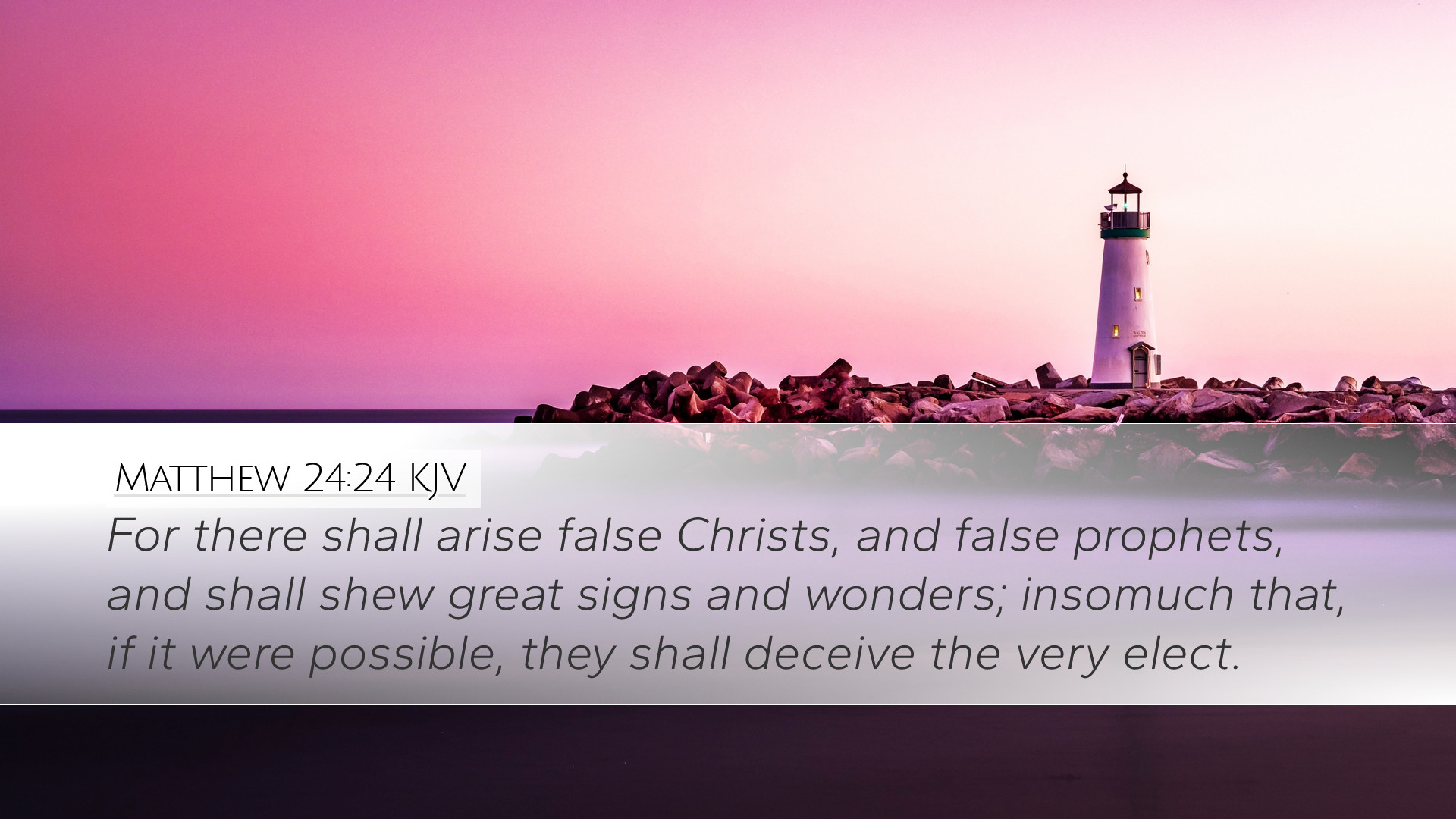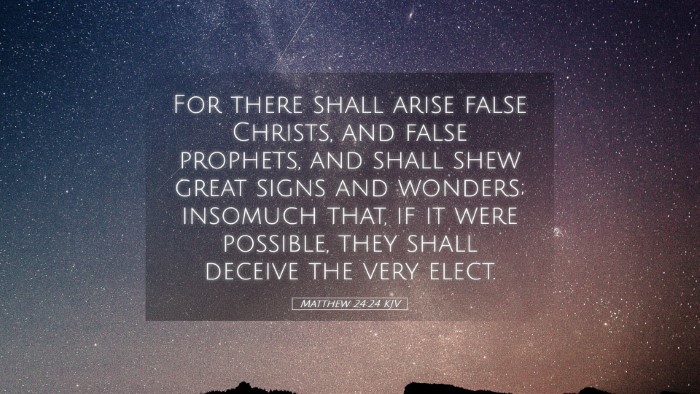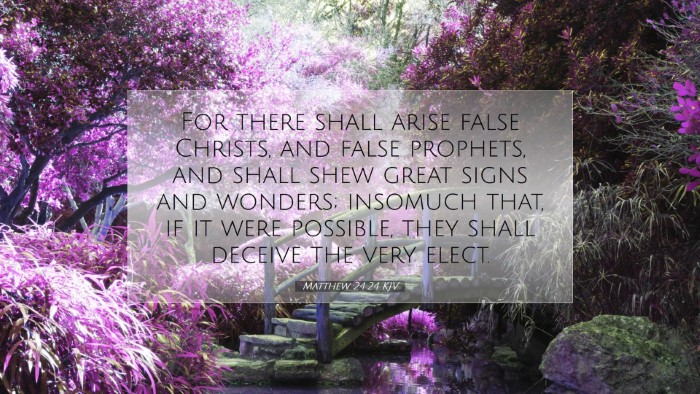Commentary on Matthew 24:24
Verse: “For there shall arise false Christs, and false prophets, and shall shew great signs and wonders; insomuch that, if it were possible, they shall deceive the very elect.”
Introduction
In Matthew 24:24, Jesus forewarns His disciples about the challenges they will face in the days preceding His return. This passage highlights the emergence of false messengers and miraculous deceptions that threaten to lead away even the most steadfast believers.
The significance of this warning cannot be understated, as it is foundational for understanding the spiritual landscape of the last days. Scholars and commentators throughout history have emphasized both the theological importance of this text and its practical implications for the Church.
Insights from Matthew Henry
Matthew Henry notes that the phrase “false Christs” emphasizes the cunning nature of those who will arise, imitating Christ to draw followers to themselves rather than to the true Gospel. He emphasizes that such false leaders will not only proclaim erroneous doctrines but will also perform “great signs and wonders,” suggesting that the miraculous will be utilized as a tool for deception.
-
Deception of the Elect: Henry points out that the presence of signs and wonders can often lead even the elect astray if they are not grounded in the truth. This highlights the critical importance of discernment and adherence to Scripture.
-
Nature of False Prophecy: He elaborates on the grievous nature of false prophets who not only mislead but also seek to undermine the faith of believers, thereby creating widespread confusion and apostasy.
Insights from Albert Barnes
Albert Barnes offers a detailed examination of the term “false Christs” and “false prophets,” connecting these figures with historical and contemporary sources of deception. He suggests that the reference to “great signs and wonders” is indicative of the extraordinary means by which these deceivers will operate, aiming to lend credibility to their false doctrines.
-
Signs and Wonders: Barnes discusses the nature of these miraculous signs, positing that while miracles can serve to affirm divine truth, they can equally be exercised by agents of deception. This position urges believers to evaluate manifestations by Scripture rather than spectacle.
-
Warning to the Elect: He echoes Henry’s sentiments regarding the potential for even the elect to be deceived, urging a reliance on spiritual vigilance and sound doctrine to withstand false teachings.
Insights from Adam Clarke
Adam Clarke provides a comprehensive theological framework for understanding the implications of this verse. He asserts that Christ’s warning is both a prediction of future events and an exhortation for believers to remain steadfast in their faith.
-
The Reality of Falsehood: Clarke underscores the reality that false teachings will proliferate, especially in times of moral and spiritual decline, which gives testament to the human propensity to seek signs rather than the substance of truth.
-
Christian Perseverance: He emphasizes the necessity for Christians to strengthen themselves through prayer and the study of God’s Word to equip themselves against such dangers.
Theological Implications
Matthew 24:24 serves as a robust reminder of the Christian call to discernment in a world rife with confusion and division. Theological reflection on this passage emphasizes the following aspects:
-
The Sovereignty of God: This verse illustrates that while deception is a real threat, God’s sovereignty ensures that His truth will ultimately prevail.
-
The Role of Scripture: The faithful application of God's Word comes to the forefront as believers are encouraged to use the Scriptures as their guide in discerning truth from falsehood.
-
The Hope of the Elect: There remains an assurance for the elect, as their standing in Christ secures them against the full sway of deception that befalls many.
Practical Applications
As we reflect on Matthew 24:24, it becomes essential for contemporary Christians—pastors, theologians, and laypeople alike—to adopt several practical approaches:
-
Vigilance in Doctrine: Regularly engage with biblical teaching and remain aware of contemporary theological trends to avoid being led astray.
-
Discernment in Spiritual Experiences: Evaluate miracles and claims of divine intervention against the authority of Scripture.
-
Community of Believers: Foster strong relationships within the Church for accountability and support against false teachings.
Conclusion
Matthew 24:24 serves as both a warning and an encouragement. While the threat of false Christs and prophets is real, believers are called to remain steadfast in their faith, grounded in the truth of Scripture. The insights of figures like Matthew Henry, Albert Barnes, and Adam Clarke provide valuable perspectives for understanding the complexities of this warning. Ultimately, vigilance in doctrine, reliance on prayer, and adherence to Scripture will safeguard the church against the deceptions prevalent in the world.


